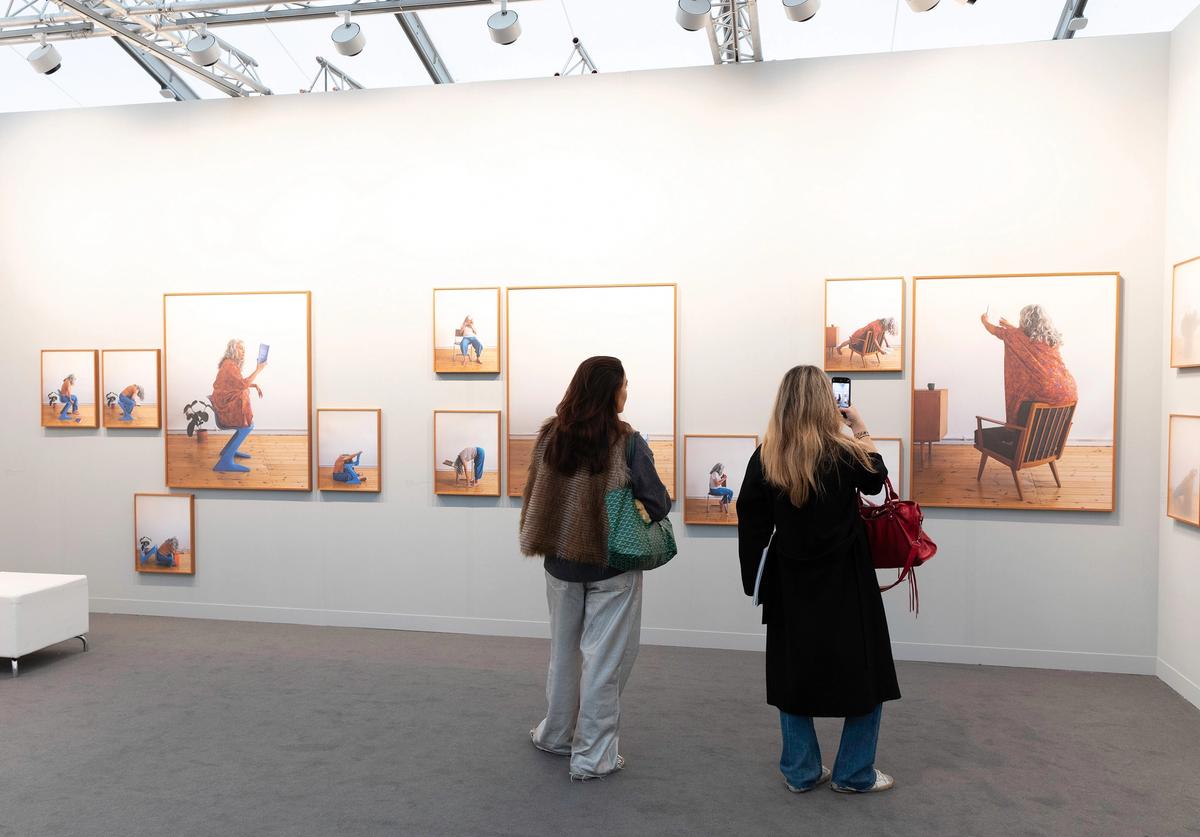Visitors to the newly redesigned Frieze London, opening one year after the Hamas terrorist attack in Israel and the ensuing war in Gaza, are immediately confronted with the crisis. One of the galleries closest to the entrance is Experimenter from India, which has brought a solo presentation by the Pakistan-born, Berlin-based artist Bani Abidi that sees the artist address “the police brutality, censorship and criminalising of anti-genocide voices” in Germany over the past ten months stemming from the Israel-Hamas war.
In the series Fragments from a Nightmare (2024), Abidi photographs herself contorted in a variety of Bauhaus chairs, “many designed by affiliates of the Nazi party”, says Prateek Raja, the gallery’s co-founder. One such work includes a carefully placed watermelon—a popular symbol of Palestinian resistance.
Constructive dialogue
Elsewhere on the stand Abidi depicts a variety of public figures voicing pro-Palestinian sentiments, such as the film director Jonathan Glazer, who addressed “the ongoing attack in Gaza” when he collected his Academy Award for his film The Zone of Interest earlier this year. Abidi’s series was acquired yesterday by the Tate Frieze fund. “We feel it’s always important for one to be able to have constructive dialogue and open up possibilities of speaking truth to power,” Raja says of the presentation.
Experimenter worked closely with Frieze London’s artistic director, Eva Langret, to bring the work to the fair, Raja says. The fair provided “guidance” as to how to discuss and show these works, due to the sensitive nature of their content. Langret was unavailable to elaborate on this process or to reveal if other galleries were advised on how to exhibit politically sensitive work. A Frieze spokesperson says: “Frieze is committed to supporting artists and galleries, acknowledging the need to engage with challenging subjects, even during times of heightened sensitivity.”
Another instance at the fair of work dealing with Palestine can be found at Athr Gallery, from Jeddah, which is showing a monochrome painting, on sale for £92,000, by the Ramallah-born artist Ayman Yossri Daydban (he gained Saudi nationality a few years ago). The abstract work of black lines on a white background alludes to contested borders and national identities, according to the gallery.
The number of works at the fair related to the Israel-Hamas war is still small, and appears to be limited to galleries from the Global South, which is unsurprising considering the divisiveness of the topic within the Western art world.


